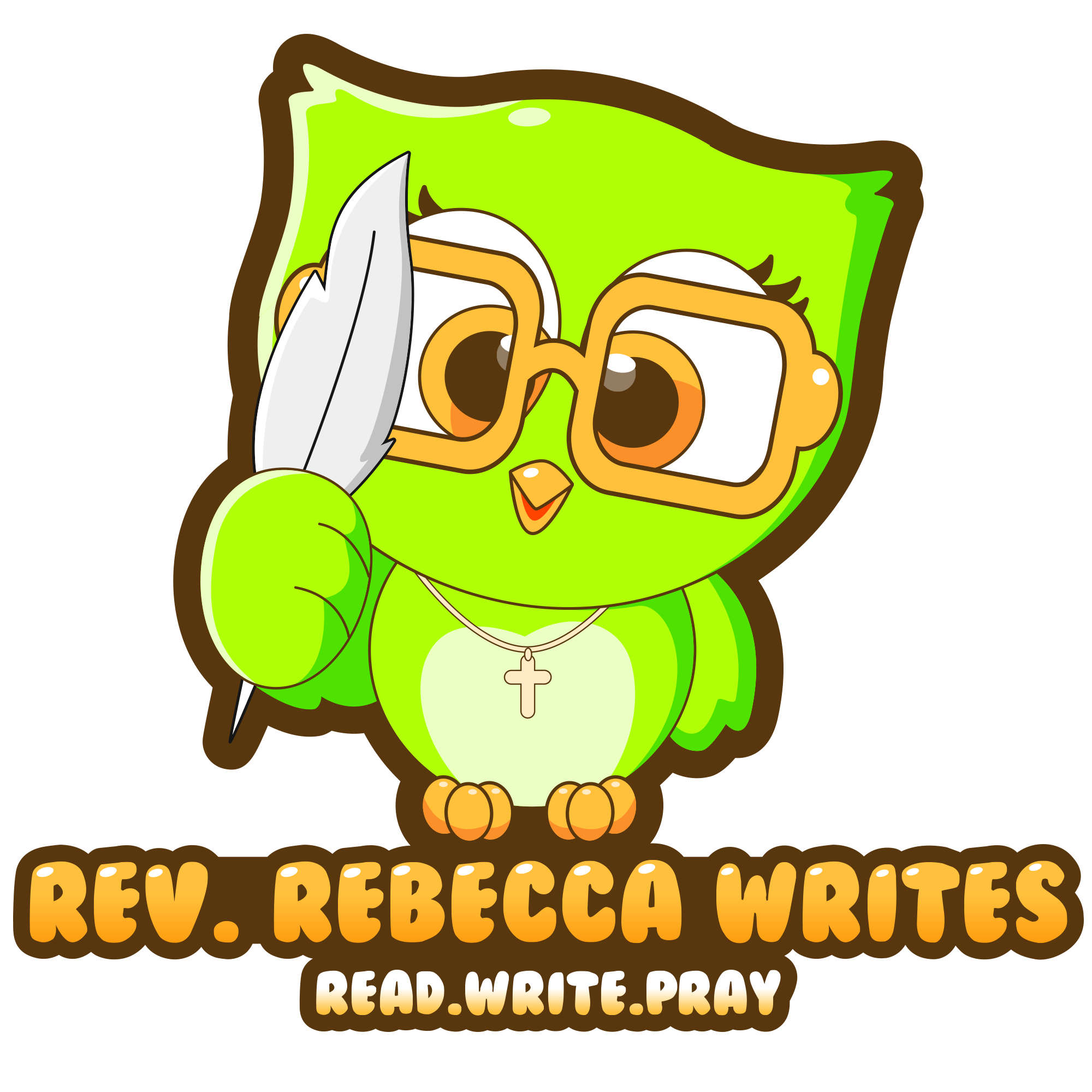What is “His Encouragement?”
Thursdays are always a really long day of the week for me. Since I’m a pastor, Sunday feels like the natural beginning to my week. By the time I get to Thursday, I am tired and drained. This is especially true during advent. That’s why I’m excited to join with a group of blogging friends in order to offer you a weekly devotional which will be posted every Thursday. We are calling the series, “His Encouragement.”

In the beginning was the Word, and the Word was with God, and the Word was God. He was in the beginning with God. All things came into being through him, and without him not one thing came into being. What has come into beingin him was life, and the life was the light of all people.
The light shines in the darkness, and the darkness did not overcome it.
(John 1:1-5, NRSV)
John’s Version of the Nativity Story
All four gospels tell the story of Jesus from a unique perspective. We can get a more full and complete picture of what Jesus was like during his time on earth by listening to the four distinct voices of the gospel writers.
John opens his gospel with a nativity story unlike the birth narratives that we find in Matthew and Luke. This gospel does not share with us images of shepherds, angels, and wise men. In John’s retelling, there isn’t even a manger in Bethlehem or a virgin birth. Instead, John assumes that the reader has already encountered Matthew and/or Luke’s version of the story.
John was the last gospel to be written. Biblical scholars believe that the oldest surviving gospel is Mark (50-70 CE). Matthew (70-80 CE) and Luke (59-63 CE) both wrote around the same time. Most biblical scholars now believe that both Matthew and Luke were able to refer to the work of Mark when they were writing their gospels. There is a good chance that Matthew and Luke may have had access to the work of one another when they were writing. Furthermore, Matthew and Luke may have had access to another written source that is now lost to us. Scholars call this source the “Q” Source. (For more about the development of the synoptic gospels, you can see this article from Bible Odyssey)
In essence, the important thing to note is that Matthew, Mark, and Luke all have a great deal of information in common; therefore, we refer to these three gospels as “the synoptic gospels.”
The gospel of John is a unique gospel with an incredibly distinct view of Jesus. John was written circa 89-95 CE, which is about fifty years after the gospel of Mark was written and at least a decade after Matthew and Luke wrote their gospels.
John doesn’t begin his gospel with a traditional narrative about the birth of Jesus. Instead, when John starts to talk about Jesus, he goes all the way back to the very beginning.
The opening words to John’s gospel echo the words that we find at the very beginning of the Bible, “In the beginning, God created the heavens and the earth (Genesis 1:1).”
John chooses to start the story of Jesus at the very beginning of time. John wants readers to know that Jesus has been present with us since the beginning of all time. Christ was there before there were humans, before there was ocean and sky, and before there was even dry land.
We need all four gospels in order to begin to grasp a complete picture of Christ; however, John’s unique Christmas story delights me. When john tells the story of Jesus, he wants us to remember first and foremost that before there was anything at all- there was Jesus.
Who Tells Our Story?

Recently, I have been thinking a lot about stories. I published my first chapbook, Through My Good Eye: A Memoir in Verse earlier this month on the first of December. Writing this book has caused me to carefully consider the stories we tell ourselves and the stories that we share with other people.
In today’s scripture reading, which is taken from the very beginning of the Gospel according to John, we hear a unique version of the Nativity story. John emphasizes the fact that Christ has been present with us since the very beginning of all time. Furthermore, John emphasizes that God and Jesus are One. Jesus is, “The light [that] shines in the darkness, and the darkness did not overcome it (John 1:5, NRSV).”
I am grateful for John’s words of comfort because I am afraid of the darkness in my own life. John’s words offer me hope and encouragement during this advent season. The holidays are always a challenging time for me, which is why last week, I shared a little bit about why the “Longest Night Service” means so much to me.
Earlier this month, I had an appointment with my eye specialist in Philadelphia. I am very blessed to be able to attend Will’s Eye Hospital, which is one of the best hospitals in the world. My condition is very complex and it weighs heavily on my spirit throughout the entire year; however, the burden has been particularly heavy in recent months. I hope that, even if we have not met in person, you would perhaps stop a moment and say a prayer for me.
The appointment went relatively well and I thank God for that; however, my doctor finds my continued complaints about my sight loss concerning. He has referred me to two more doctors. I now have appointments to see a low vision specialist and a retinologist.
I am grateful that my job as a pastor in the United Methodist church provides me with the health insurance necessary to see these specialists. My medical condition has made me so grateful for the usable vision that I have available to me. I am also grateful for my friends who are blind, as well as the many wonderful people of the National Federation of the Blind, the Intermediate Unit, and Orientation & Rehabilitation Services, who have taught me that losing one’s eyesight does not mean losing one’s independence.
All of this was weighing on my heart when I recently attended a church meeting and experienced a hurtful act of ableism. (Note: “Ableism,” can be defined as any act of prejudice that is committed against a person who has a disability.) I understand that ableism, like many acts of prejudice, is often inadvertent and usually accidental.
Nevertheless, every act of ableism hurts. For many people who live with a disability, the never ending experiences of ableism can feel like “death by a thousand cuts.”
This act of ableism deeply wounded my spirit. I think it was so humiliating because it happened in front of a group of people.
I was reminded of last week’s scripture verse:
“And I will save the lame
and gather the outcast,
and I will change their shame into praise
and renown in all the earth (Zephaniah 3:19.”
I was so humiliated that I came home and I did the only thing I could think to do: First, I hit my knees in prayer. Then, I picked up my pen (Metaphorically- in reality I sat down at my keyboard) and wrote, “16 Easy Ways the Church Can Be More Accessible to People With Disabilities.”
The article immediately began to gather attention. It seemed that I had hit a nerve: people with disabilities are hungry to be heard and recognized in both the church and the secular world.
I do not profess to have all the answers. I am familiar with many disabilities but I know that I have a great deal to learn about many other disabilities, such as deafness culture. Nevertheless, I am happy to have helped to facilitate the conversation.
Shortly after writing the article, “16 Easy Ways the Church Can Be More Accessible to People With Disabilities.” I was contacted by The United Methodist DisAbilities Committee.
For years, I thought that I was all alone. In my life, I had only met three other pastors who were blind or who had low vision. When I was contacted by the committee, I realized that I was not alone. In fact there is an entire group of us!
I will confess to you, dear Reader, I cried with joy.
It was as if the Holy Spirit was whispering in my ear:
We are never alone.
People with disabilities are taking back the narrative. We are picking up our pens (or Braille Notes, keyboards, or other writing implements) and using the gift of language that God gave us to write our own stories.
John offers us a Word of hope this holiday season through his unique telling of the greatest story of all, “In the beginning there was the Word... The light shines in the darkness, and the darkness did not overcome it (John 1:5, NRSV).”
Dear Reader, remember that Christ is with us, even when we think we are wandering alone in the darkness.
Until next time,
Peace Be With You,
-Rev. Rebecca

Please be sure to check out the other great bloggers involved in the His Encouragement weekly series!



I am so sorry that you were hurt. I will be honest — I’ve never heard of abelism before. You have opened my eyes to a new concept. I am inspired by your immediate reaction to pray and then vent through a positive means (your article). Again, I am really sorry that an insensitive person hurt you.
I do wish you and your family a very merry Christmas. And, thank you for this blog today. It definitely opened my eyes to a new truth.
LikeLiked by 1 person
Hello! It’s so lovely to hear from you. Thank you so much for your kind words. I believe that most people don’t mean to hurt others. That is why I wanted to do something positive to raise awareness. I think the most important thing of all is to love one another. Thank you so much for reading and I hope you have a very merry Christmas!
LikeLiked by 1 person
I’m so sorry to hear about all you’re going through with your vision, but how you’re handling it is an inspiration. I’m sure that you are/will be a blessing to many others as you fight for the disabled. I’m very sorry that you were hurt by someone recently as well. People can be cruel whether they realize what they are saying or not. I’ll be praying for you and for the doctors caring for you for wisdom and healing. Thanks for sharing today and hope you have a Merry Christmas!
LikeLike
Woh I love your posts, saved to fav! .
LikeLike
I am so sorry that you were hurt in this manner. While I’m sure we have very different eye issues, I understand the fear that comes along with losing your eyesight (something deeply personal I’ve never shared on my own blog). I will be praying for you, Beckie. ❤️
LikeLike